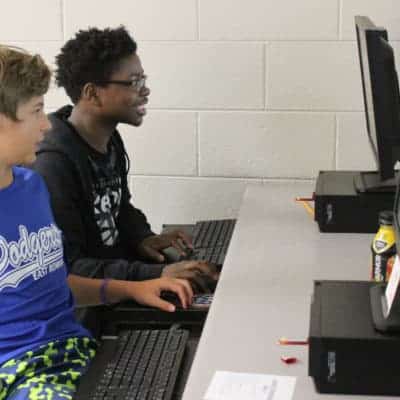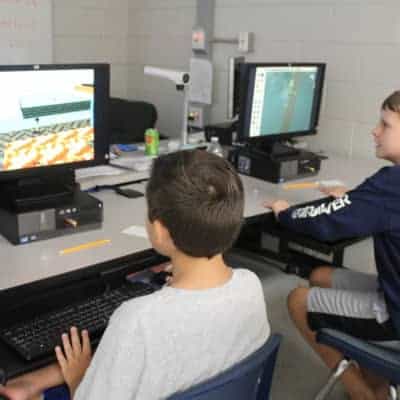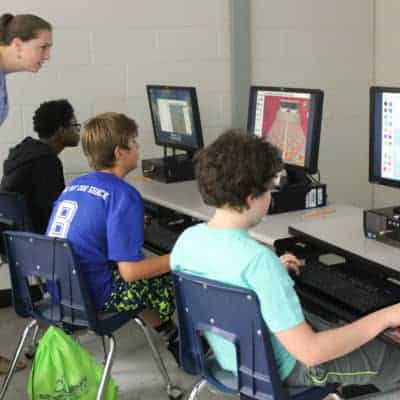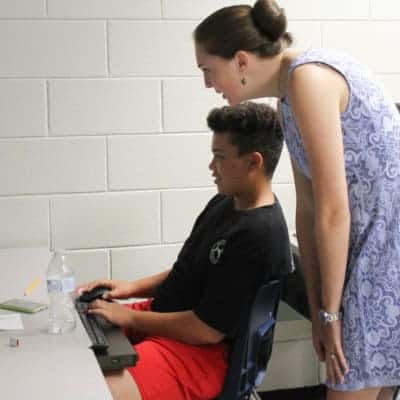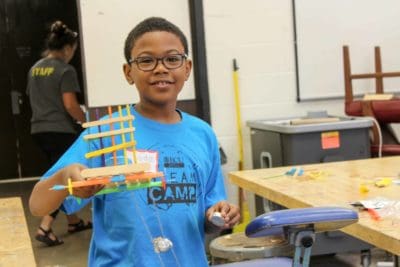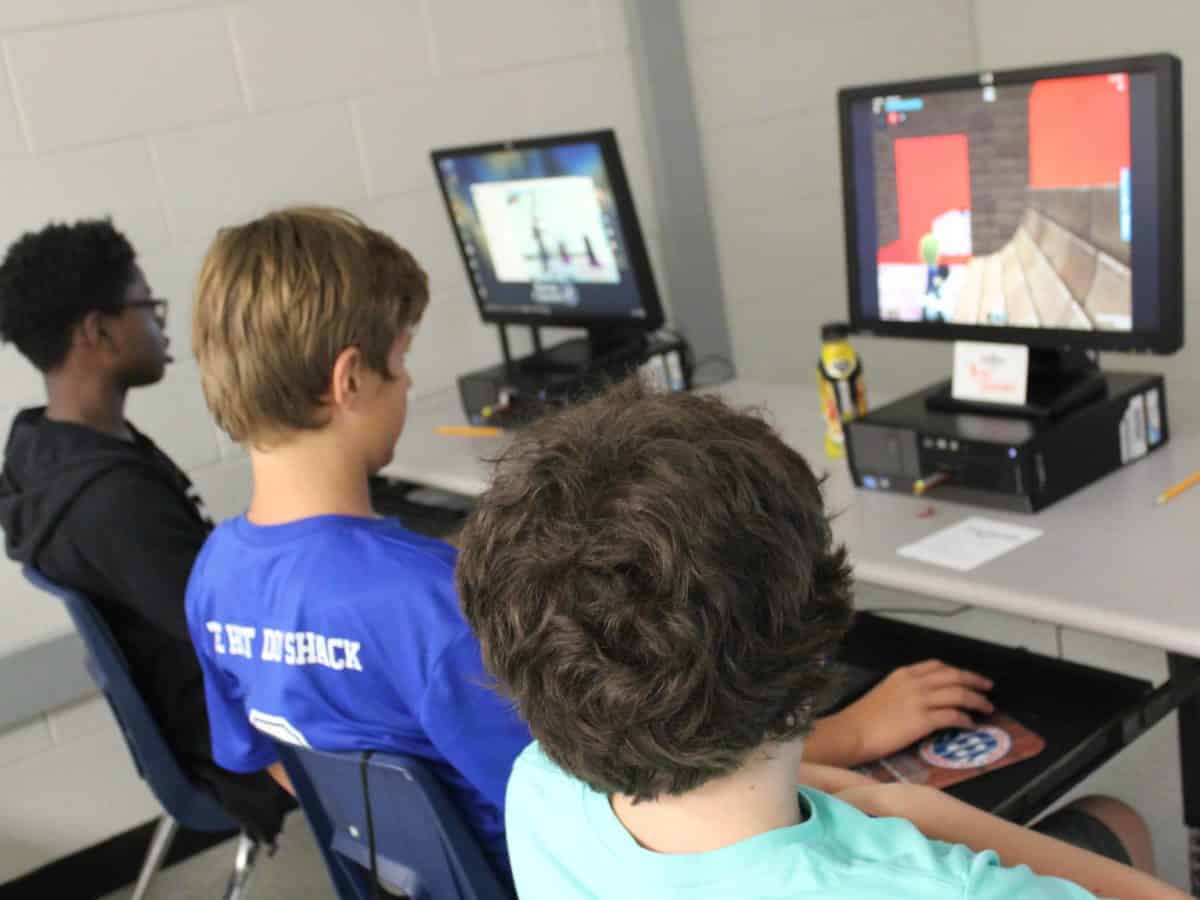
Rising seventh graders Elijah Finley and Austin Emmons are into video games — so much so that they make them.
For Finley, it started with Nintendo.
“My first thing that I played was on the Wii,” said Finley. “I’ve always been fascinated with Nintendo and all their stuff, and ever since then I’ve just wanted to create my own games and just follow the footsteps.”
For Emmons, it started with Minecraft in kindergarten. Now he’s moved onto games like Call of Duty, Mario Kart, and Geometry Dash.
“So I decided that I want to make one. I feel like I would have a job in this,” said Emmons. “I’ve already made mini-companies with my friends at school where we would draw out concepts for games, and when I would get home I would start working on them in Unity.”
Emmons said he taught himself how to build video games on platforms like Unity and Unreal Engine through YouTube tutorials, but for one week this summer, he received more formal instruction at the “Make Your First 3D Video Game” summer camp hosted by Rowan-Cabarrus Community College (RCCC). The camp drew students from three area primary school districts: Cabarrus County Schools, Kannapolis City Schools, and Rowan-Salisbury Schools.
“At the end of the week my goal for them is to have tried on and sampled a career opportunity,” said Sherie Neely, program manager at RCCC. “They can find out what they love and do it in a way that they’re having a really good time.”
RCCC offered other week-long summer camps focused on a variety of STEM topics, including Python programming, drones, robotics, virtual reality, and web development.
“Summer time is a great time to get to talk to these students and help them shape those opinions and realize that STEM is not scary and they are capable of doing these kinds of careers,” said Paula Dibley, executive director of marketing and enrollment management at RCCC.
“It’s a community service. Does it just so happen that we think we are a pretty awesome asset to our community and we want people to be aware of us? Yea,” Dibley said. “But the goal is just to make sure that these young people have a bright future in fields that are growing.”
Neely agreed, saying, “More and more careers, and the high paying careers, are going to be focused around STEM opportunities.”
In the 3D video game camp, students used the Black Rocket curriculum to build their games, which included multiple levels, setting how many “lives” players had, who “enemies” were, and designing what their game would look and feel like.
“This is more drop and play based, so it’s less coding on this one and it’s more exploration and creativity,” said instructor Ashlyn Cagle. “It’s really astounding. As adults, we become so linear in our thinking, and then you get to see the students and they’re just so raw with their creativity. You look at several of these [games], and they all look different.”
Finley joined the 3D session after attending the 2D summer camp last year. This year, he worked on creating a multi-level game featuring “skeleton octopus” enemies. He said part of the game design is balancing the power between the players and the enemies.
“If an enemy is too strong and your attack is too low, that’s really not balanced, so you [have to] make the enemy weaker or make your attack more powerful to balance it out,” he said.
In addition to thinking through the math of fair play, Finley said he found a lot of creativity in the game design process.
“You just get to express your own ideas and put them out there,” said Finley. “Once you put them out there, people can play and see your ideas and like it or not. Any criticism is good, and it’s just fun.”
Across the room, Emmons had designed his game based on Crash Bandicoot. The game featured basic jumps, a sand and forest level, secret “lives,” spike traps, lava, and roaming crabs.
“You get to let your creativity go wherever it wants,” Emmons said. “And you can make anything how you want. Make rules. Just make anything with no limits.”
But Emmons said developing the games also generally involves a lot of skill in math.
“When you start making games in more advanced engines, you have to do a lot of coding which can take some skill in math and different types of subjects,” Emmons explained. “It’s really fun.”
For Cagle, the engagement of her students didn’t go unnoticed.
“They’re learning much quicker than I did just because they already have everything at their fingertips,” Cagle said. “So if they have that opportunity, let’s give it to them and see how much farther we can push it.”
“As they continue to get older, they’re going to be our future leaders in technology.”


